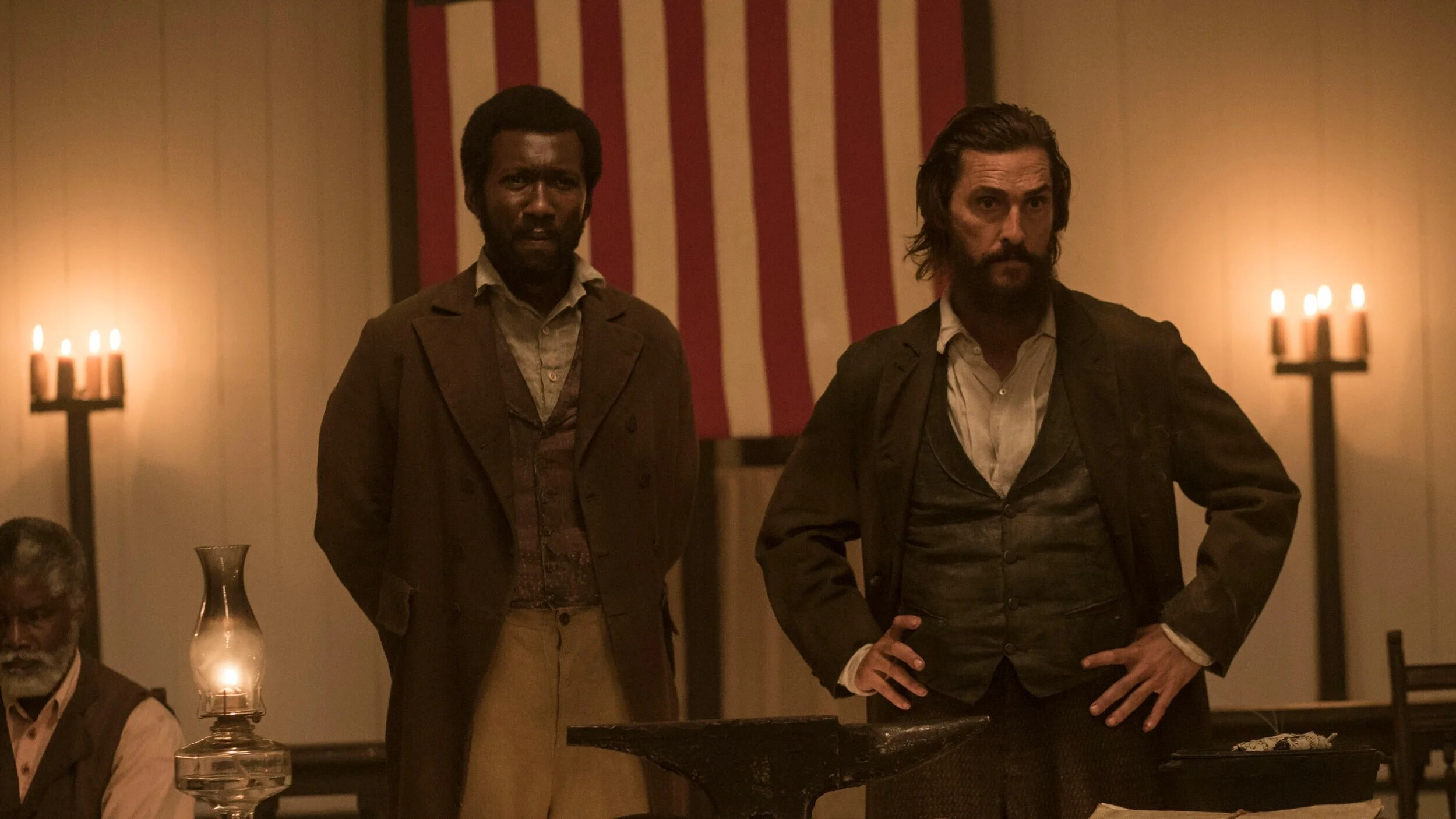Free State of Jones
A grim historical drama featuring life in the American South in the 1860s and 1870s.
American audiences familiar with the historical figure of Newton Knight, a Southern farmer who played a key role in Jones County, Mississippi during the American Civil War, may have the advantage of knowing what to expect here. For others the material is decidedly unwieldy, so that what is a long film (139 minutes) undoubtedly feels its length. At the outset Knight (Matthew McConaughey) is with the Confederate Army and the film's brutal depiction of war's violence suggests that this will essentially be an anti-war movie. That's so even if we are informed that it will deal with actual events that occurred between 1862 and 1876. When Knight deserts he shows his support for the black slaves and sets up an independent group that will ultimately declare the Free State of Jones and embrace equality, but much of what we see does indeed play as a reaction against war.
The subject matter of this film by Gary Ross invites a comparison with the best historical drama set in America to have appeared in recent years, 12 Years a Slave. But with that film all audiences were alerted to what to expect, whereas Free State of Jones only gradually reveals what a catalogue of suffering it will be. It is competently directed, but the characters lack real depth: Knight's big speeches which give him heroic status are long delayed, while his long lasting love for the slave Rachel (Gugu Mbatha-Raw) is no more than sketched in. This is surprising since, despite their relationship, Knight retained a bond with his wife Serena (Keri Russell) and interestingly this led to some kind of menage-à-trois. Prior to that, the way that Rachel, abused by her master in a nearby big house, freely comes and goes to aid Knight and his companions who are living in the swamps is typical of the film's lack of persuasive detail despite its length. Mbatha Raw, such an engaging actress, deserves better than this.
In the event there is considerably more footage still to come after the Civil War scenes end. This turns the spotlight on the continuing suffering of former slaves living in the South (these were the days of the Ku Klux Klan). This is all worthwhile stuff, of course. However, this meandering film, complete with a fictional villainous figure in Lt. Barbour (Bill Tangradi) and the equally fictional death scene of his commander Colonel McLenore (Thomas Francis Murphy), never finds the right format for it. Furthermore, while it is appropriate to underline racial problems beyond the 19th century, it is downright clumsy when the film cuts away briefly at intervals to the 1948 trial of a descendant of Knight accused of breaking segregation laws. The story, which would have gained from greater authenticity and from more detailed characterisations, would surely have had the impact it deserves if presented on television in a drama series. That would have enabled the narrative to proceed step by step with fuller investigation at each and every stage.
MANSEL STIMPSON
Cast: Matthew McConaughey, Gugu Mbatha-Raw, Mahershala Ali, Keri Russell, Christopher Berry, Thomas Francis Murphy, Bill Tangradi, Sean Bridgers, Jacob Lofland, Brian Lee Franklin.
Dir Gary Ross, Pro Scott Stuber, Jon Kilik and Ross, Screenplay (from a story by Leonard Hartman and himself) Gary Ross, Ph Benoît Delhomme, Pro Des Philip Messina, Ed Juliette Welfling and Pamela Martin, Music Nicholas Britell, Costumes Louise Frogley.
Bluegrass Films/Rahway Road/Larger than Life/STX Entertainment/Huayi Brothers Pictures-StudioCanal.
139 mins. USA/People's Republic of China/Republic of Korea. 2016. Rel: 30 September 2016. Cert. 15.


